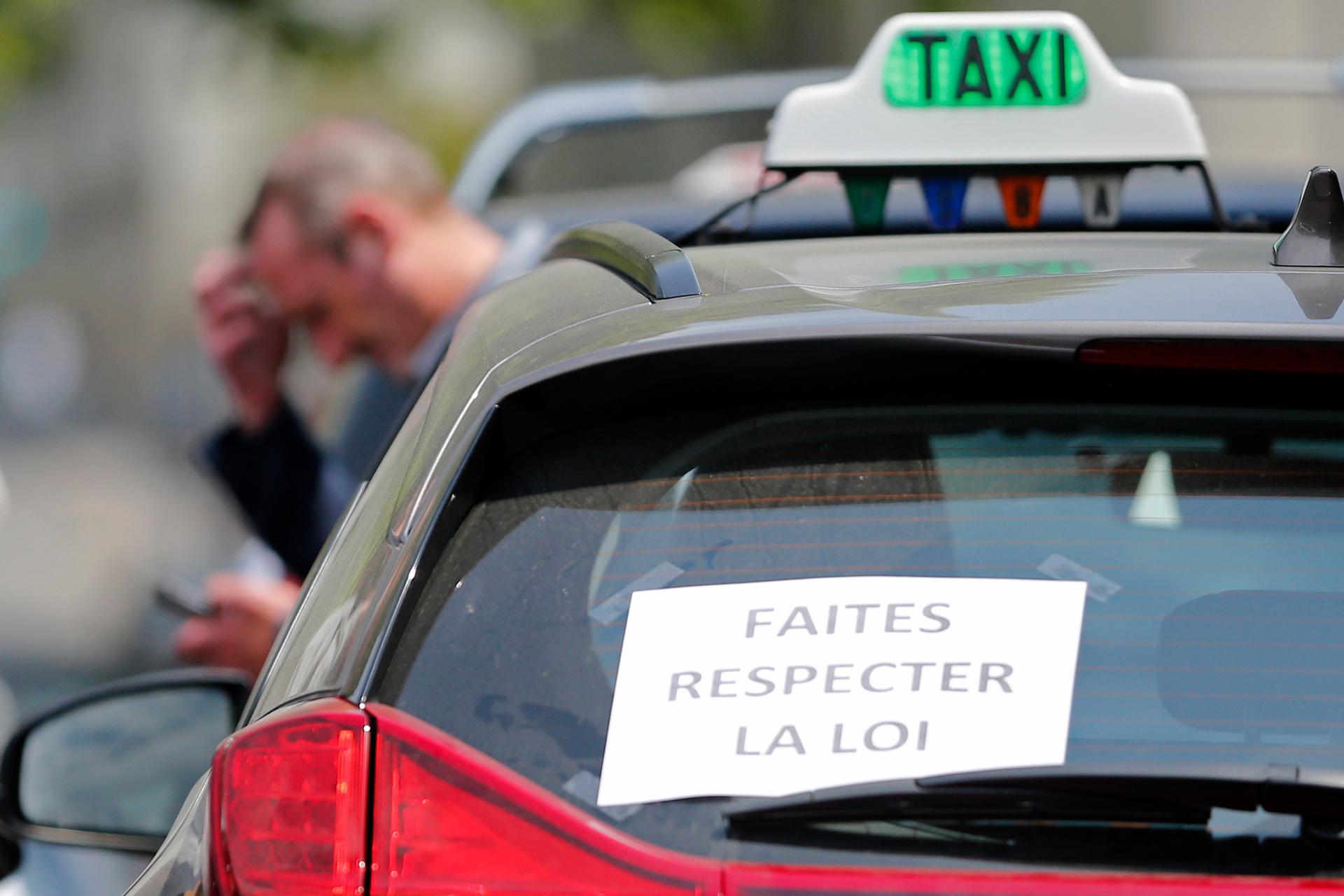Taxi drivers demonstrate during a protest against car-sharing service Uber in Nantes, in western France. Uber, an online cab service that links drivers with passengers through a smartphone app, launched its UberPOP service in three more French cities on Monday, provoking anger from taxi drivers who see it as unfair competition. The placard reads "do respect the law."
Cities in France are the latest worldwide to show anger over the Uber car service’s swift move into new markets.
The San Francisco-based private car-hailing app expanded its services to Marseilles, Nantes and Strasbourg on Monday. In response, taxi drivers in these cities have started several protests in the form of traffic gridlocks. In one case late Tuesday, they hijacked an Uber driver in Marseilles, telling him: "You're stealing our jobs. It's as if I was stealing your car, your GPS, everything.'' The driver was unharmed.
Taxi drivers had blocked the streets of these cities, backing up traffic for several miles. The secretary general of Marseille’s taxi syndicate stated: “We will not move from the streets until we have secured our rights.” The issues are the same as in previous protests: Taxi drivers say Uber evades regulatory costs and will take their business with less overhead.
Today’s protests echo similar actions in Paris in December. The car service’s French expansion prompted the creation of a law effectively banning UberPop. Despite the new legislation, Uber continues to operate in cities throughout the country.
Protests have followed Uber throughout its global expansion its urban transportation footprint. A number of countries banned the popular service, including Germany, Spain and Thailand. Taxi drivers lead the movement: in Boston, they circled the Uber headquarters downtown, stating that Uber “threatens their livelihoods.”
London’s iconic “black cab” drivers were equally angered by the app’s spread: last summer, over 30,000 drivers brought traffic to a standstill in an effort to protect one of the world’s most entrenched taxi systems.
But the most concerning complaint over Uber came from India: in December, a driver was accused of raping a passenger and arrested. The incident sparked outrage throughout the country and abroad, culminating the car service being banned from New Delhi.
Readers, tell us what you think: Are taxi drivers justified in their outrage, or should they let the free market run its course? Let us know in our comments section.
Every day, reporters and producers at The World are hard at work bringing you human-centered news from across the globe. But we can’t do it without you. We need your support to ensure we can continue this work for another year.
Make a gift today, and you’ll help us unlock a matching gift of $67,000!
